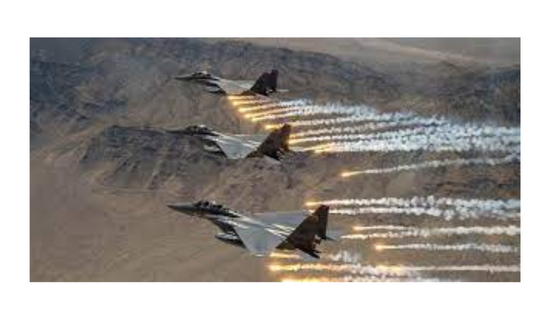The Nigerian Air Force, specifically the Air Component of Operation Hadin Kai, has implemented an immediate and comprehensive ban on all drone operations within the North-East region of the country, encompassing Borno, Yobe, and Adamawa states. This decisive action stems from mounting security concerns regarding the unregulated proliferation and potential misuse of Unmanned Aerial Vehicles (UAVs), commonly known as drones. The increasing accessibility and affordability of drones have created a security vulnerability, as these devices can be easily acquired and deployed by non-state actors, criminal elements, and even individuals with malicious intent. The ban aims to mitigate the risks posed by unauthorized drone activities and ensure the safety and security of the region’s airspace.
The Air Component Commander, Air Commodore U. U. Idris, highlighted the growing trend of both domestic and commercial drone usage, often without proper authorization or adherence to existing regulations. This unregulated environment has created an atmosphere ripe for exploitation by nefarious entities. The potential use of drones for surveillance, reconnaissance, and even attacks against military targets and critical national infrastructure poses a significant threat to national security. The ease with which drones can bypass traditional security measures makes them an attractive tool for those seeking to destabilize the region. Further complicating the issue is the lack of awareness among many drone operators regarding the legal and security implications of their actions. Many operate under the assumption that drone usage is unrestricted, further contributing to the security dilemma.
The Air Component’s concerns are not merely hypothetical; they are grounded in concrete incidents that underscore the urgent need for regulation. A recent case, involving the discovery of a drone during a routine security check of a passenger on an NGO flight from Maiduguri to Monguno on January 7, 2025, provides a stark example of the potential risks. The incident revealed the vulnerability of even seemingly secure environments to unauthorized drone infiltration. While the specific intent behind the drone’s presence remains under investigation, it highlights the potential for misuse and the need for stricter control measures. Such incidents underscore the potential for drones to be employed for smuggling, espionage, or even attacks, emphasizing the critical nature of the ban.
The ban on drone operations is not intended to stifle legitimate drone usage in the long term but rather to establish a framework for safe and responsible operation. The Air Component recognizes the potential benefits of drones in various sectors, including agriculture, infrastructure inspection, and disaster relief. However, these benefits must be balanced against the potential security risks, which necessitates a robust regulatory framework. The current ban serves as an interim measure to address the immediate security concerns while laying the groundwork for future regulations that will allow for authorized drone operations under strict oversight. This will involve developing a clear process for obtaining permits, defining permissible flight zones, and implementing measures to ensure compliance.
The Air Component of Operation Hadin Kai is mandated with regulating all aerial activity within the North-East theatre, including aircraft and drones. This responsibility stems from the need to de-conflict the airspace, ensuring the safety of both civilian and military aircraft. The proliferation of unauthorized drones introduces a significant element of risk into this already complex environment, threatening the safety of all airspace users. The ban is therefore a crucial step towards maintaining order and preventing potential collisions or other aerial incidents. It allows the Air Component to effectively monitor and control the airspace, mitigating the risks posed by uncontrolled drone activity.
The Air Component has made it unequivocally clear that any violation of the drone ban, regardless of the circumstances, will be met with serious consequences. This firm stance is necessary to ensure the effectiveness of the ban and deter potential violators. All stakeholders, including government agencies, private individuals, and commercial entities, are expected to comply fully with the directive. The Air Component is committed to enforcing the ban rigorously, utilizing all available means to detect and intercept unauthorized drone operations. This may involve surveillance, ground patrols, and even the use of counter-drone technology. The ultimate goal is to create a safe and secure airspace for all, and the strict enforcement of the ban is a crucial step in achieving this objective.


